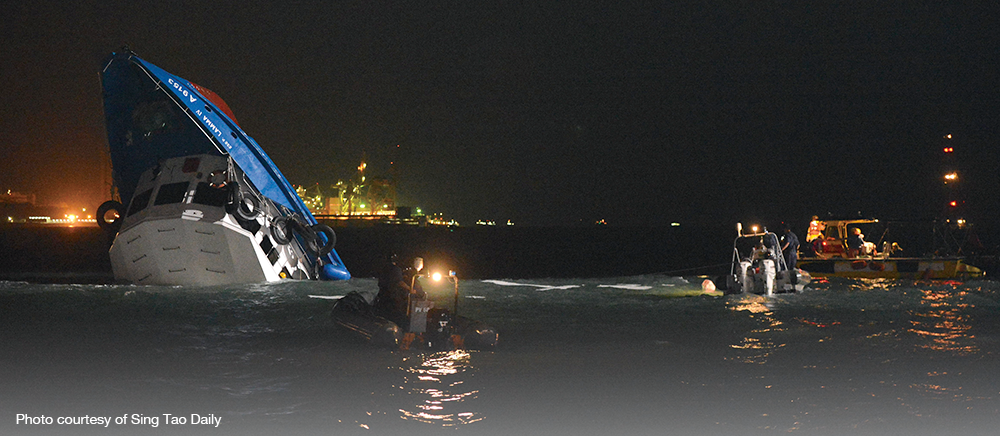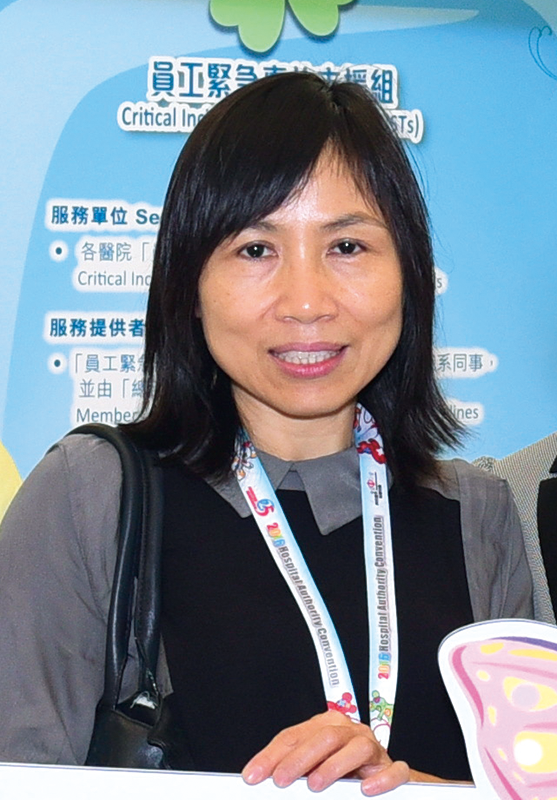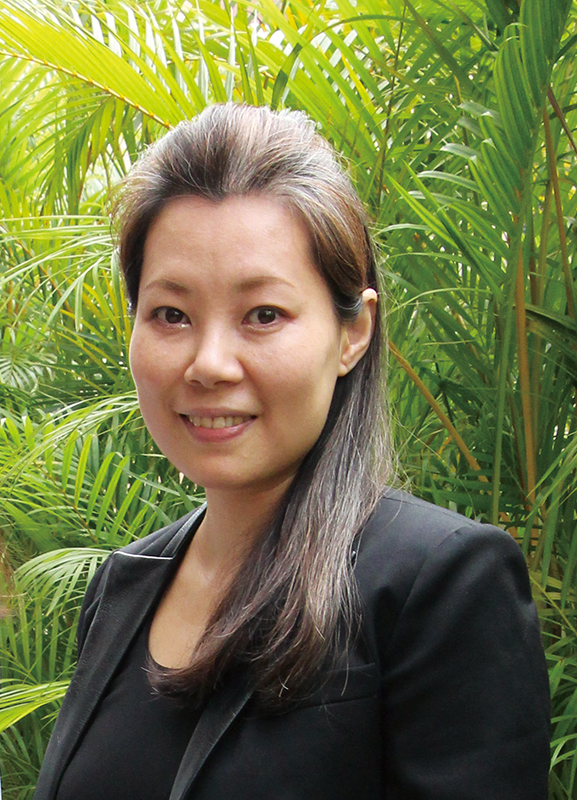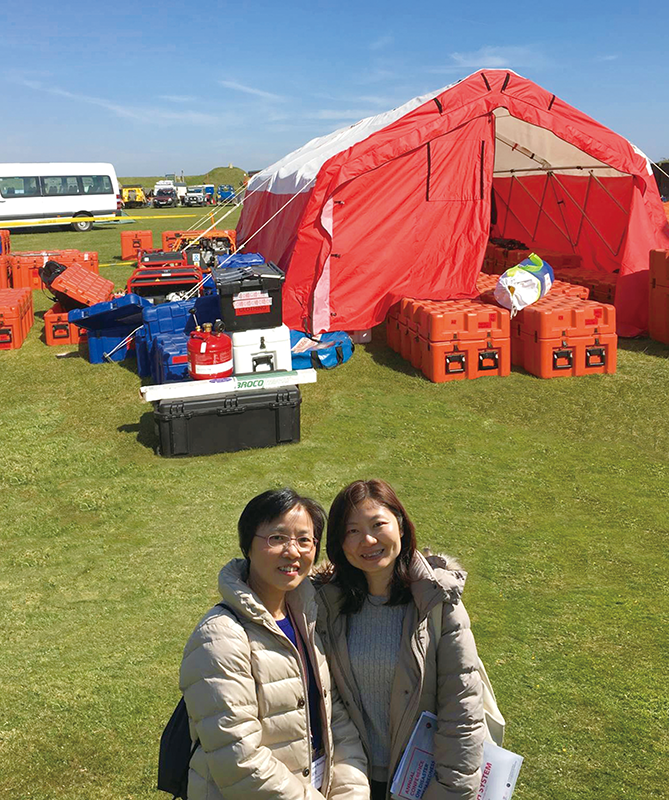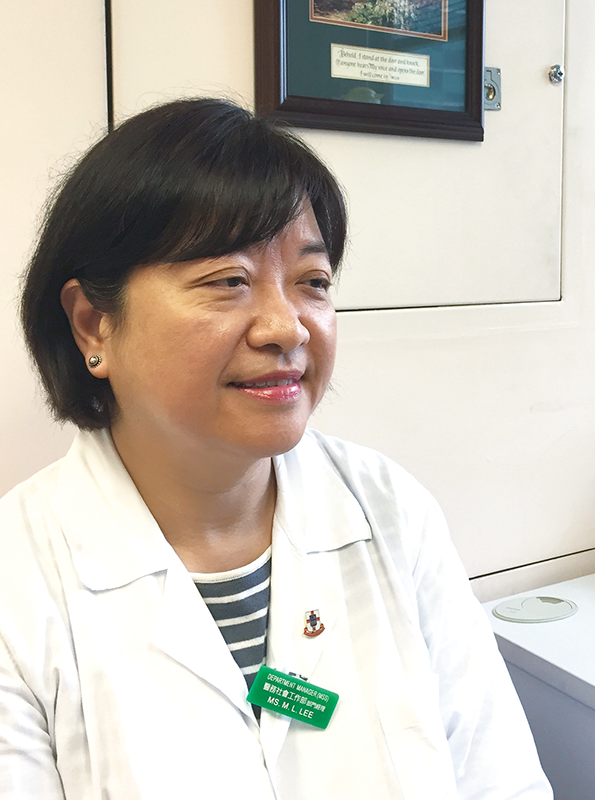Disaster relief helps victim cope with grief
In-situ support for disaster
Disasters strike without warning. They often leave nothing but seas of grief and trauma. Some survivors may develop mental health conditions such as post-traumatic stress, anxiety, and depression. To help people cope with the aftermath of disasters, the Hospital Authority’s Disaster Psychosocial Services Team (DPST), comprising psychologists and medical social workers, plays a pivotal role in helping survivors and victims’ family through their ordeals and supporting them as they pick up the pieces of their lives.
2012-10-01
Ferry collision off Lamma Island
Jeanie Ngan, Senior Clinical Psychologist and Cluster coordinator (Clinical Psychology Services) arrived at a scene of grief and confusion when she rushed to Pamela Youde Nethersole Eastern Hospital in response to a critical incident notification following the ferry collision off Lamma Island. A child was reported dead and desperate relatives were pouring in trying to find out about missing family members. “We took care of the emotional family members overnight and supported those who suffered the pain of loss,” recalls Jeanie. “We also provided psychological assessment and treatment for those who had further needs.”
Tragically, two HA employees were among the victims. Oasis offered psychological support to colleagues. Dr Wacy Lui, Clinical Psychologist, remembers how one of the two victims was still unaccounted for the next day before being confirmed as among the dead. At a crisis management briefing session at the hospital, she helped the department brief distressed colleague on the accident, discussed the emotional reactions they might experience and how to deal with them. She also set up a blessing corner for the missing colleague of the two victims to express their feelings and support one another. “I still have vivid memories of the moment we gathered and cut paper hearts to send blessings to the colleague,” she says. “It created a sense of calm and helped to allay the turmoil everyone was going through.”
2004-12-26
Indian Ocean Tsunami
After the Indian Ocean tsunami happened in 2004, Senior Clinical Psychologist Dr Rosalie Lo flew to Phuket, Thailand with colleagues to give support to Hong Kong families caught up in the disaster. “We spent every night with Hong Kong families, listening to stories of searches for missing relatives,” she says. “We listened patiently and helped them cope with their emotions such as grief, anxiety and fear.” Dr Lo praises the efficient and compassionate response of the Thai officials who transformed government buildings, playgrounds, and hotels into disaster response centres, and mobilised local people to assist rescue teams, survivors, and victims’ families, including provision of hot food and drinks, translation services, and communication facilities.
1997-01-25
Top One Karaoke Fire, Tsim Sha Tsui
Florence Lee, DPST Coordinator and Kwong Wah Hospital Department Manager (Medical Social Service), sharply remembers comforting a distraught mother whose son was fatally injured in the arson attack at Top One Karaoke in Tsim Sha Tsui. Florence kept the mother company as she awaited news of her son. “A professional counsellor needs to judge when and how best to comfort someone in that situation,” says Florence. “At that moment, keeping her company is the best help. I held her hands, listened to her and comforted her. When she learned her son was dead, she instantly broke down crying. I did my best to support her till her family members arrived to take her home.” Acute grief support allows family members to understand their physical and mental reaction, which helps them accept painful facts and go through grief.”
● Filling the gap of doctor shortage
COVER STORY
● In search of doctors with limited registration to relieve frontline stress
● Overseas returnees guard hospital frontline: case 1
● Overseas returnees guard hospital frontline: case 2
● How to ensure the standard of non-locally trained doctors?
WHAT'S NEW
● HA Go: an empowering app to manage one’s health
● Together we shall overcome challenges
● Patient-friendly perspective says it all
● Dr Nguyen’s secret way to reduce stress
● Mobile blood drive follows donor footprints
HELEN HA
● New tools enhance staff communication
● Keep your phone going even in hospital
FEATURE
● Disaster relief helps victim cope with grief
● Prepare for the unpredictables
STAFF CORNER

